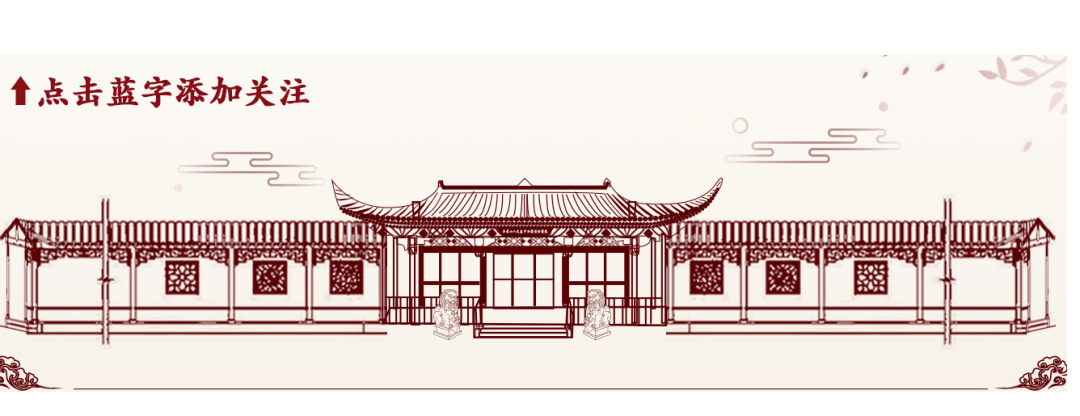
Did you know? From the perspective of Traditional Chinese Medicine (TCM), human constitution is divided into nine major types, with the best type being called Pinghe Tizhi (平和体质, Harmonious Constitution), which belongs to the healthy category. The other eight types fall under sub-health conditions, one of which is known as Tan Shi Tizhi (痰湿体质, Phlegm-Damp Constitution). A few years ago, our internal medicine expert, Director Wang Zhenkun from the China Academy of Chinese Medical Sciences, specifically discussed the Phlegm-Damp Constitution during his appearance on BTV Health Channel’s “Healthy Beijing” program. Was it due to its complexity or its prevalence that he chose to focus on it?
I believe many of Director Wang’s insights are quite profound, and I have carefully organized the relevant content to share with you.
Highlights from the video

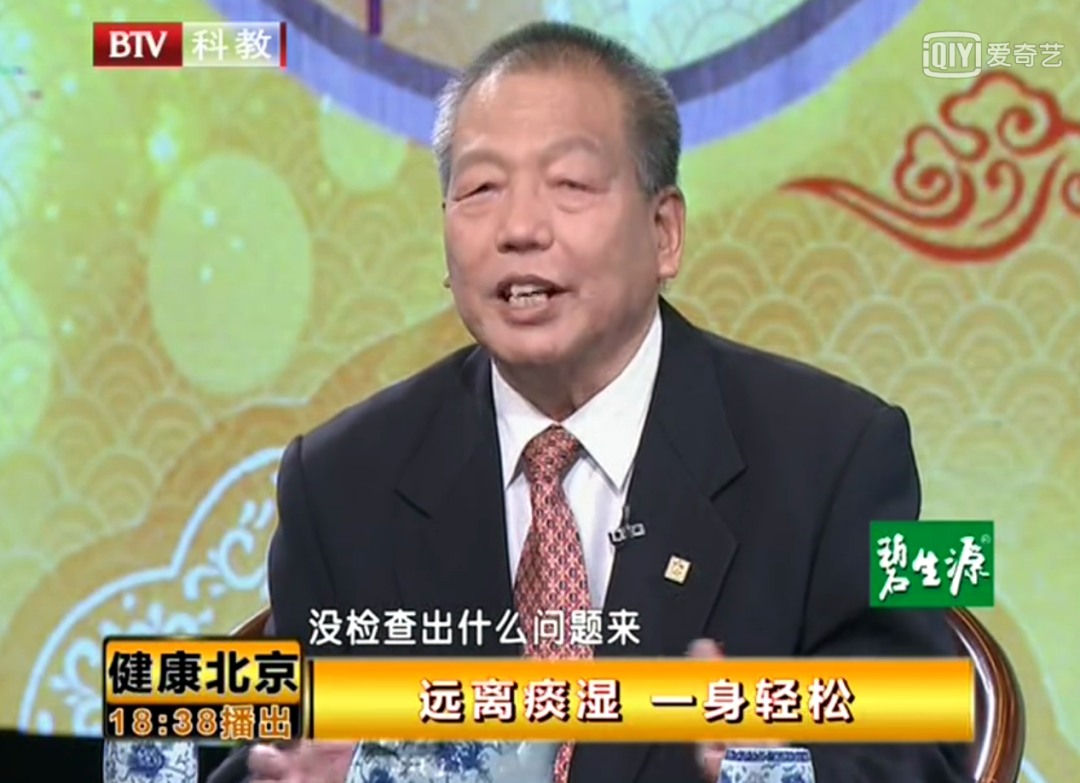
The Phlegm-Damp Constitution is quite common among people, yet it often goes unnoticed. In a sub-health state, organs are not diseased, and no issues can be detected upon examination, but specific symptoms are present. Western medicine primarily focuses on pathological causes and lesions, while TCM emphasizes the importance of symptoms.

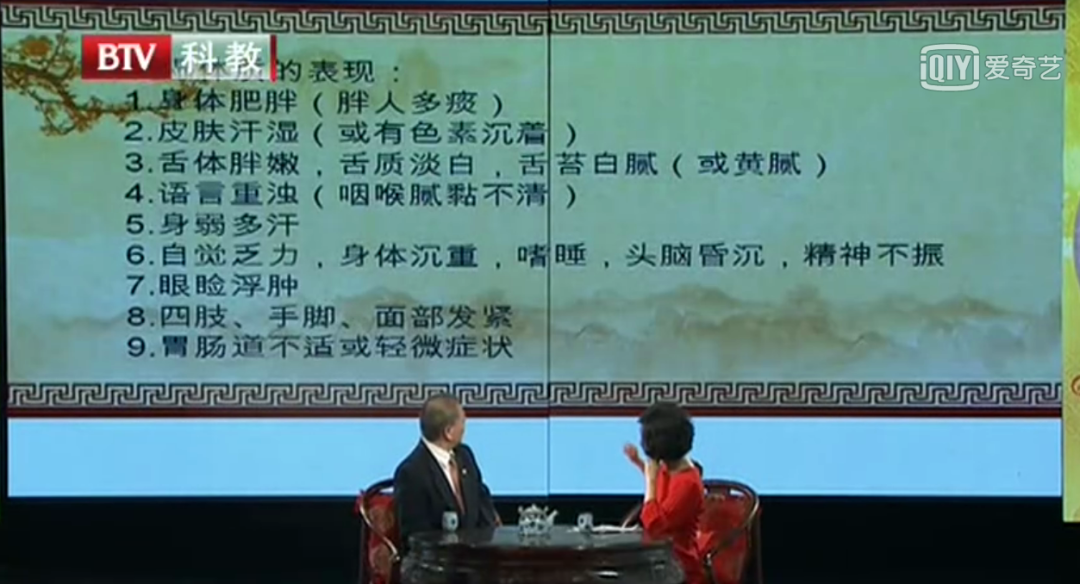
Specific manifestations of the Phlegm-Damp Constitution:
1: Obesity and Phlegm
Obese individuals often have excessive phlegm; nine out of ten overweight people are deficient in Qi (气虚, Qi Deficiency), primarily characterized by insufficient functional capacity, low work intensity, and easy fatigue.
2: Sweaty Skin
Patients with phlegm-dampness typically have a slower water metabolism throughout their circulatory process, leading to an excess state. Thus, even a little sweating can leave the skin damp.
3: Fat, Tender Tongue, Pale Tongue Body, White and Greasy Coating
These are manifestations of the Phlegm-Damp Constitution on the tongue. A pale and tender tongue indicates a deficiency in the body, and some individuals may have a swollen tongue. A pale tongue signifies low organ function.
A thick, white, greasy coating on the tongue indicates heavy dampness; some gastrointestinal patients may also exhibit a white greasy coating, which is a sign of dampness.
4: Heavy and Muddled Speech
Phlegm often accumulates in the throat, affecting the voice, making it sound heavy and dull rather than clear and crisp.
5: Weakness and Excessive Sweating
Individuals with a weak constitution sweat easily, whether during slight activity or even at rest, and may sweat just from drinking water.
6: Fatigue, Heaviness, and Drowsiness
With significant phlegm and insufficient Zheng Qi (正气, Vital Qi), individuals feel weak and fatigued, as if they have done heavy labor, often preferring to sit or lie down. This is often a manifestation of Qi deficiency. The heaviness is exacerbated by dampness, leading to drowsiness and a foggy mind.
Director Wang once treated a patient in his 40s who exhibited these symptoms: drowsiness, a foggy mind, lack of energy, and memory loss. He would forget where he placed his keys immediately. His snoring at night was also significant, related to the dampness in the trachea.
7: Eyelid Swelling
Individuals with spleen deficiency and excess dampness often experience slight swelling of the eyelids, which may not be noticeable at times.
8: Tightness in Limbs and Face
During the water metabolism process, excessive dampness can lead to tightness in the hands, feet, or skin. In severe cases, pressing on the skin leaves an imprint.
9: Gastrointestinal Discomfort
Gastrointestinal discomfort is often related to phlegm-dampness. Some may feel bloated in the epigastric region and abdomen, which is a manifestation of dampness. Others may experience increased intestinal motility, leading to gurgling sounds, also related to dampness. Additionally, constipation can be associated with phlegm-dampness.
Not all nine manifestations of the Phlegm-Damp Constitution need to be present. While obesity is often associated with dampness, thin individuals can also have significant dampness.

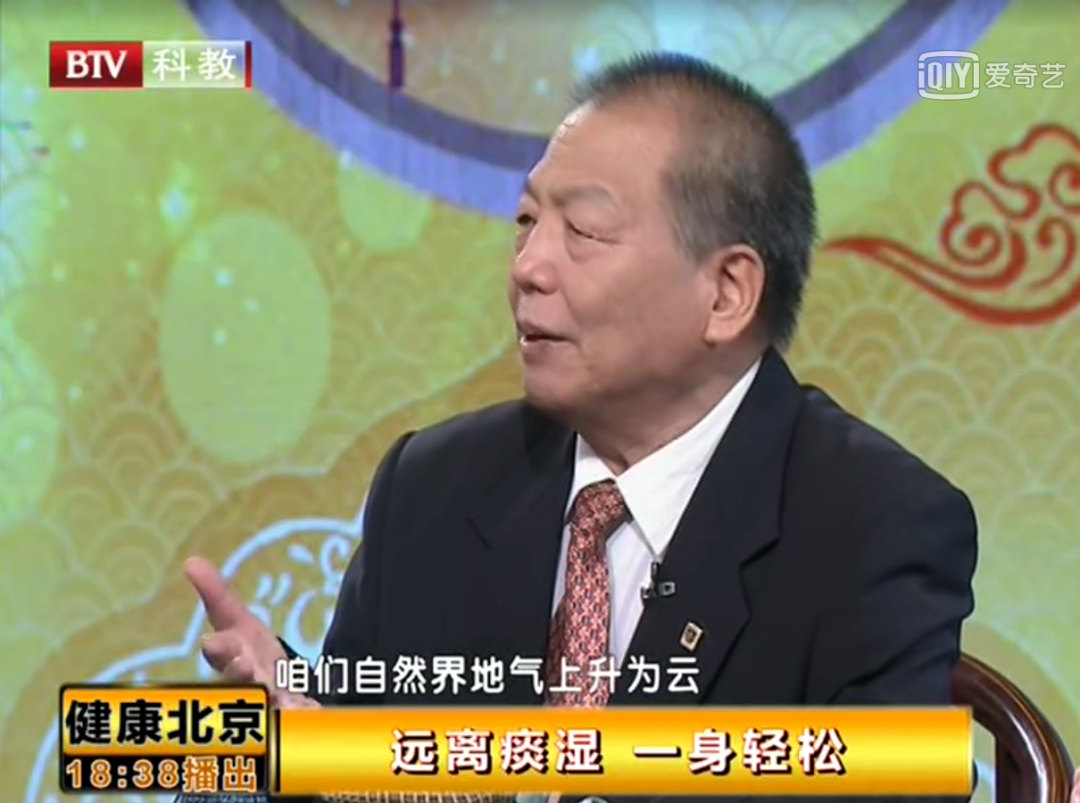
The issue of phlegm-dampness refers to problems arising during the water metabolism process.
In nature, the earth’s qi rises as clouds, and the clouds descend as rain; this cycle represents water metabolism on Earth, which is similar to the metabolism in our bodies.
1. Water metabolism relies on the heart’s Yang descending and the kidney’s fire ascending.
The heart’s Yang can be likened to the sun, which, when it shines down, allows the kidney’s fire to ascend, facilitating the movement of water, including body fluids and blood, upwards to the spleen and stomach, then to the liver, and finally to the lungs.
2. Both ascending and descending processes must pass through the spleen and stomach.
How does the left ascend? How does the right descend? The kidney’s Yang vaporizes Qi, blood, and body fluids through the spleen and stomach, ascending to the lungs, which represent the heavens in nature. After ascending, the lung Qi descends, first to the spleen and stomach, then to the kidneys and bladder.
If issues arise during this process, such as poor spleen and stomach function (especially the spleen, which is the source of phlegm), and if lung Qi does not descend, respiratory symptoms may occur.
Both ascending and descending processes require the spleen and stomach, and nutrients must also pass through them for proper movement. Yang Qi is crucial in this process; when the sun shines, clouds and mist dissipate.
Therefore, individuals with phlegm-dampness must pay attention to protecting their Yang Qi, maintaining their functions, and safeguarding their Qi, which is very important!

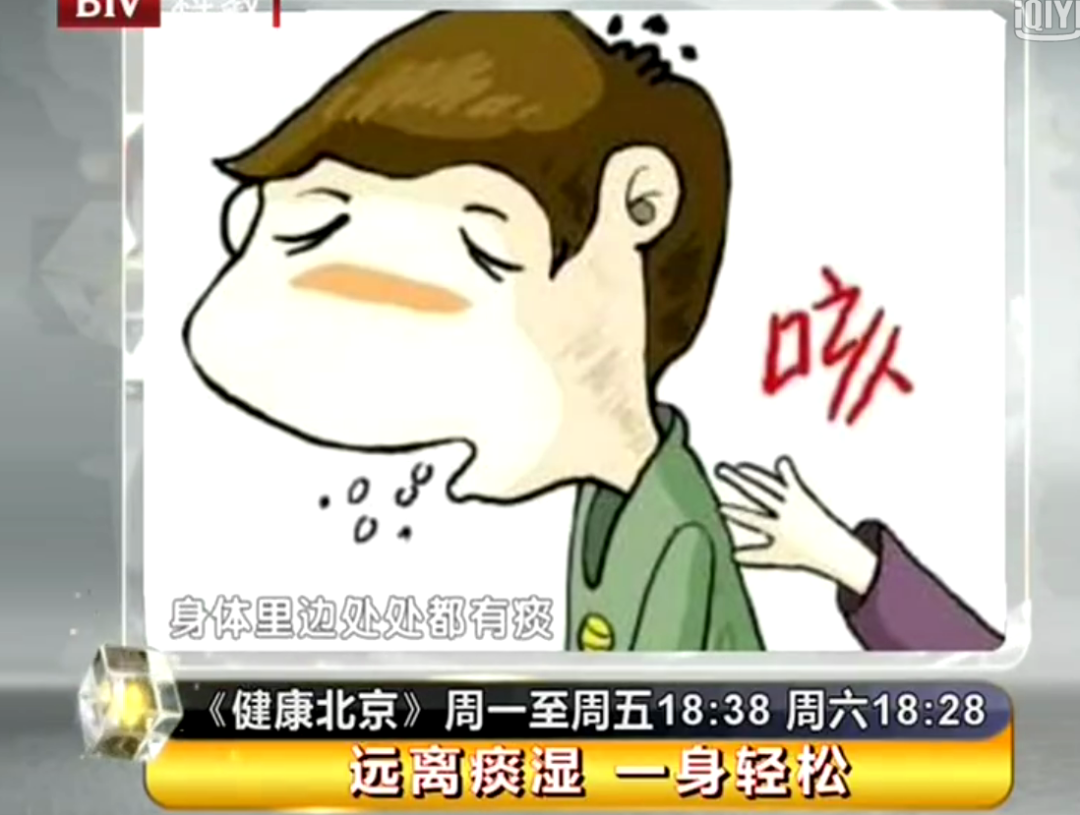
In TCM, phlegm exists between the layers of the body and is not visible. For example, phlegm can be present in the brain; some individuals experience dizziness, which TCM refers to as phlegm dizziness, indicating that excessive phlegm-dampness in the brain affects the Yang Qi’s release, leading to dizziness and visual disturbances. Headaches can also be related to phlegm, and epilepsy may also be associated with phlegm, which is invisible but exists in the brain.
Phlegm can also accumulate in the neck, causing stiffness and tightness. In cervical spondylosis, phlegm can be a contributing factor. Cervical spondylosis is often not just a bone issue; phlegm-dampness can affect the muscles or tendons surrounding the bones, leading to tension, which is also not visible.
Additionally, phlegm can exist in the heart, clouding the mind and causing confusion. This confusion is a result of phlegm affecting consciousness. Phlegm in the chest can affect the heart, leading to symptoms such as chest fullness, heaviness, pressure, and mild pain.
Phlegm can also be present in the gastrointestinal tract, but in this case, it is referred to as “Yin (饮, Drink),” which is similar to phlegm but lighter and more transparent. The fluids present in the gastrointestinal tract are often related to Yin. The pericardium can also accumulate fluid, which can be considered Yin.
Phlegm-dampness can also exist between the muscles and meridians of the body; conditions such as wind-damp pain or numbness due to meridian obstruction are related to dampness.
Director Wang provided an example of a patient with coronary heart disease, whose ECG showed changes in the T wave, indicating issues with heart blood supply. Treatments focusing on invigorating blood circulation, tonifying Qi, and supplementing both Qi and Yin were ineffective. However, after adding herbs to resolve phlegm and dampness, significant improvements were observed.


Wang Zhenkun
Chief Physician
Researcher at the China Academy of Chinese Medical Sciences
Studied under renowned TCM expert Fang Yaozhong and Master Zhen Sheng
Has traveled abroad multiple times as a TCM expert
Conducted clinical and research work in medicine
Consultation Hours: Tuesdays and Saturdays in the morning
Specializes in treating: Cardiovascular diseases, myocarditis, arrhythmia, hypertension, hyperlipidemia, type II diabetes, acute and chronic bronchitis, acute and chronic nephritis, urinary tract infections, urinary stones, rheumatoid arthritis, menstrual disorders, dysmenorrhea, metrorrhagia, leukorrhea, dermatitis of the reproductive organs, menopausal disorders, sexual dysfunction, prostatitis, etc.



